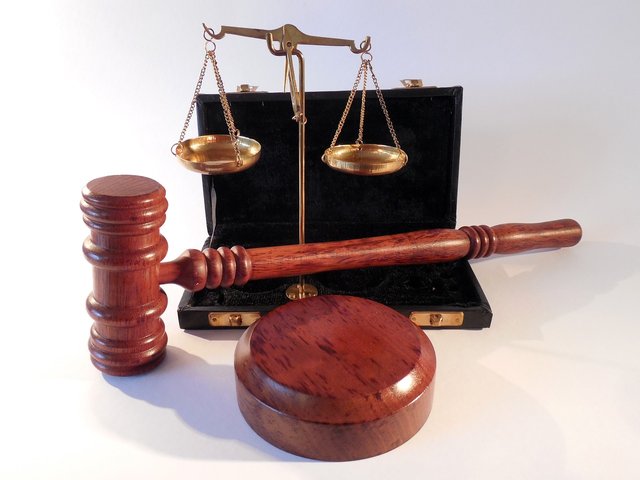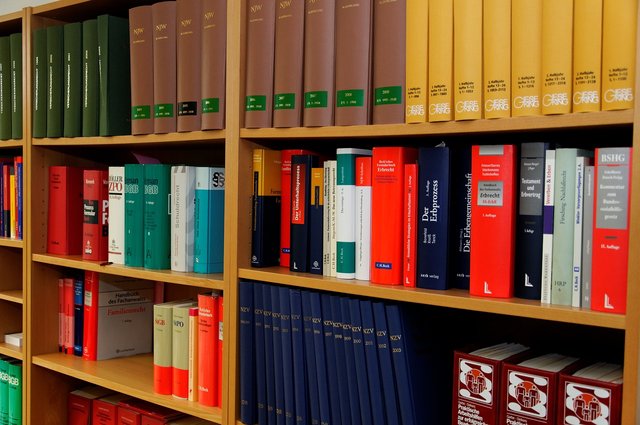You are once again welcome to my publication...
 Source Source |
|---|
Part I
Two Examples of Public Law in Nigeria
1. Constitutional Law
Constitutional law establishes the framework that defines the interaction between the government and its citizens. It is anchored in the constitution, the ultimate authority within a nation. This area of law rigorously interprets and applies constitutional principles, clearly delineating the powers and limitations of the government, safeguarding the rights and freedoms of citizens, and defining the relationships among the different branches and levels of government.
Constitutional law stands as the supreme authority, ensuring that all other laws and government actions are derived from it. It clearly delineates the powers among the various branches of government and enforces the rule of law, mandating that all government actions must rest on legal foundations rather than arbitrary whims. Moreover, it unequivocally protects the freedoms and fundamental rights of citizens, including the right to a fair trial.
The Fundamental Rights (Enforcement Procedure) Rules 2009 that make provision for the enforcement of the fundamental rights safeguarded by the Nigerian Constitution is a typical example of constitutional law.
2. Administrative Law
Administrative law is a critical framework that governs the operations of government agencies and public institutions. It establishes the essential rules, regulations, and procedures that dictate the actions of government officials and agencies, ensuring accountability and transparency in their operations.
Since administrative law has a specified rule of thumb that the state must stick to in the course of serving the populace, it can be said to be a public law.
The Federal Road Safety Commission (Establishment) Act is an example of administrative law as it ensures crash investigation and data collection, road safety education and awareness as well as traffic regulation and enforcement.
Two Examples of Private Law in Nigeria
1. Property Law
Property law encompasses the rights and interests that individuals and organizations have in both tangible and intangible assets. This includes real property, such as land and buildings, as well as personal property, which consists of movable items like cars, furniture, and jewelry.
This law clearly establishes the right to own, utilize, and dispose of property, the physical control and occupation of property, as well as providing definitive legal proof of ownership.
The Land Use Act 1978 which regulates the utilization and acquisition of land in Nigeria is an example of property law
2. Tort Law
This law addresses civil wrongs, including injuries or damages resulting from the actions or inactions of individuals. Its principal aim is to offer compensation to those affected and to discourage similar misconduct in the future, ultimately promoting accountability and justice in society.
It encourages the obligation to act with reasonable care to avoid causing harm to others and deals with the failure to meet the duty of care which results in harm to others. It evaluates the link between the breach of duty and the harm caused and also sees the compassion awarded to victims for their losses or damages.
It ensures the upholding of the obligation of exercising reasonable care to prevent causing harm to others. The failure to fulfill this duty results in liability for the harm caused. It also thoroughly evaluates the relationship between the breach of duty and the resultant harm. Additionally, it ensures that victims receive appropriate compensation for their losses and damages.
The principle of strict liability for environmental pollution in Nigeria established by the Nigerian National Petroleum Corporation (NNPC) versus F.A.B. Enterprises Ltd. (2014) is an example of tort law.
 Source Source |
|---|
Part II
The law that interests me most is Civil Law
Protection of Individual Rights
This is one law that makes provision of a framework for the protection of individual rights like the right to liberty, life, and security of a person. It makes certain that individuals receive fair and just treatment as well as their rights not being violated by others
Remedies for Wrongful Acts
For individuals who have been wronged, the law also provides legal means to recover a right or to prevent or obtain redress for a wrong. For instance, compensation can be sought from the person responsible for the damage to someone's house.
Promotion of Personal Freedom and Autonomy
Personal freedom, as well as autonomy, is promoted by civil through the allowance of individuals to be responsible for the choices of their lives like where to live, who to marry, and what profession to pursue. It additionally safeguards individuals against unwarranted interference by others as well as the government.
Access to Justice and Resolution of Dispute
This law makes attainable a system designed for individuals to have access to justice and find a solution to disputes, come to an agreement, or make peace. Individuals can, through the court, seek redress for wrongs done against them, and in an equitable and just manner, disputes can be resolved. This helps in the promotion of social order and stability.
Part III
My Story
I am into building construction, specifically residential buildings. Over the years in such a profession, I have had several ordeals with clients but I will be sharing the most impactful of them all.
Years ago, a client offered me the job of the construction of a 5-bedroom, all-ensuite bungalow. After all the necessary evaluations and estimations, I gave the time frame for the execution of the job. This is a profession I have been into for quite a long time and I know precisely how long it would take to execute a job. The price was negotiated and he paid in full.
The death and burial of my beloved mother affected the time frame for the job and my client sued me for breach of contract and claimed damages for losses. All efforts for us to resolve the matter on a round table failed.
The Legal Process
My client filed a lawsuit in the civil court and alleged breach of contract. I was served a summons as well as a copy of my client's complaint. There was an exchange of pleadings between both parties as I filed a response to the complaint.
The case proceeded to court for trial, where my client presented substantial evidence of the breach as well as his losses. The court ruled in his favor and awarded him damages for the loss incurred resulting from my breach of the contract.
Why my experience falls under civil law
The dispute was strictly between my client and me, a defining characteristic of civil law cases. I did not meet my contractual obligations to my client, which ultimately resulted in a civil lawsuit.
My client demanded compensation for the losses he suffered as a result of my breach of contract, a standard remedy in civil law cases. This issue was effectively resolved in a civil court, the appropriate venue for handling civil law disputes.
The various branches of law help convey an understanding of the most appropriate way of handling issues when they arise. Whether private or public law, care should be taken to know the differentiating factors and the right approach, as one law addresses issues between individuals while another between state and individuals.
X promotion link
Downvoting a post can decrease pending rewards and make it less visible. Common reasons:
Submit